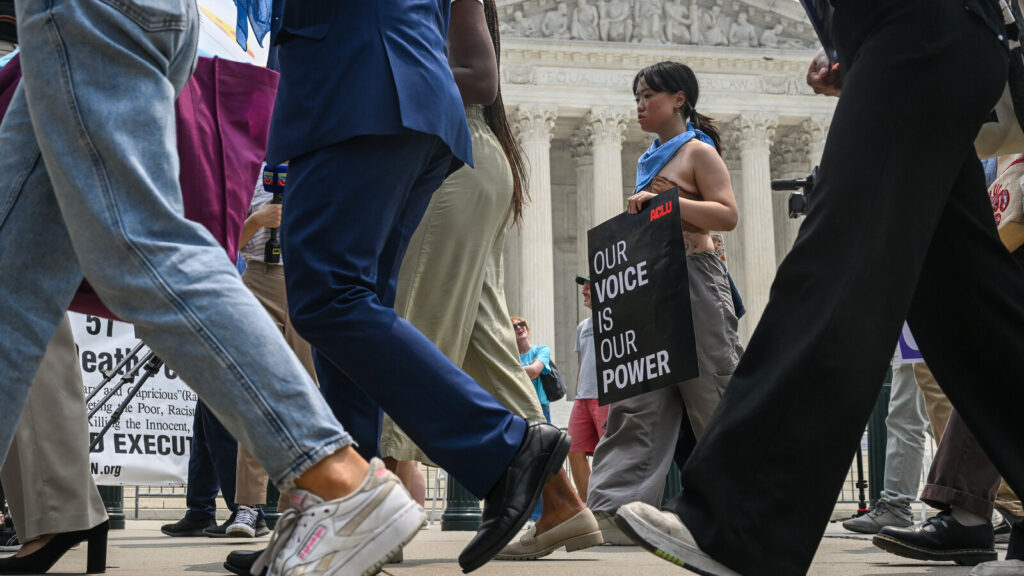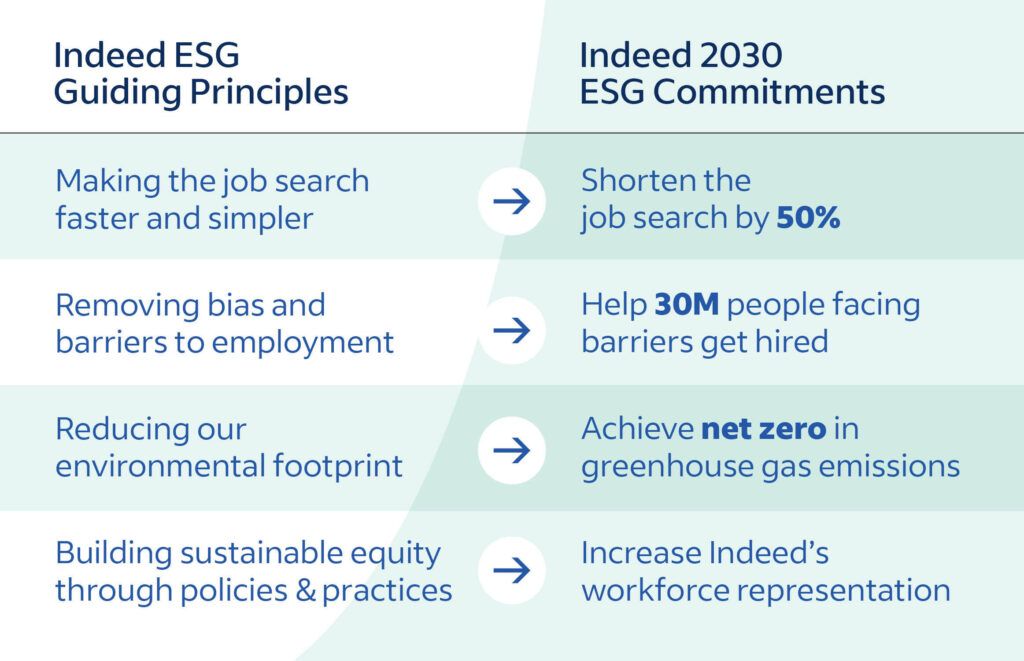In the ever-evolving landscape of U.S. business, few topics have sparked as much controversy as Environmental, Social, and Governance (ESG) criteria and Diversity, Equity, and Inclusion (DEI) initiatives. Once hailed as progressive tools for sustainable and ethical corporate practices, ESG and DEI are now under intense scrutiny. This backlash against corporate ESG and DEI in U.S. business reflects a broader cultural and political shift, with critics arguing that these frameworks prioritize ideology over profitability and merit. As we delve into this topic on likiy.net, we’ll explore the origins, criticisms, and potential future of these programs amid growing opposition.
The term “ESG backlash US” has surged in search queries, highlighting public interest in how environmental concerns, social justice, and governance standards are clashing with traditional U.S. business models. Similarly, “DEI backlash corporate America” captures the discontent over hiring practices perceived as discriminatory. According to recent surveys, 80% of corporations are reworking their ESG strategies in 2025 due to political pressures. This article examines the roots of this siege, drawing on data from industry reports, legal developments, and real-world examples to provide a comprehensive overview.
For those new to the concepts, ESG refers to a set of standards for a company’s operations that socially conscious investors use to screen potential investments. Environmental criteria consider how a company performs as a steward of nature. Social criteria examine how it manages relationships with employees, suppliers, customers, and communities. Governance deals with a company’s leadership, executive pay, audits, internal controls, and shareholder rights. DEI, on the other hand, focuses on creating diverse workforces, ensuring equitable opportunities, and fostering inclusive environments.
The rise of these initiatives in the 2010s was driven by millennial and Gen Z consumers demanding ethical U.S.business practices, alongside institutional investors like BlackRock pushing for sustainability. However, by 2025, the narrative has flipped. Political figures, state legislatures, and even shareholders are pushing back, leading to record outflows from ESG funds and companies quietly scaling down DEI programs. This backlash isn’t just rhetorical; it’s manifesting in laws, lawsuits, and boardroom decisions that could reshape corporate America.
In this in-depth analysis, we’ll cover the historical context, key arguments from both sides, notable case studies, and what the future holds for ESG and DEI amid this turmoil. Whether you’re a U.S. business leader navigating these waters or an investor tracking trends, understanding the “ESG backlash in U.S. businesses 2025” is crucial. For more on sustainable investing basics, check our internal guide: ESG Investing 101.

The Rise of ESG and DEI in Corporate America
To grasp the current backlash against corporate ESG and DEI, we must first trace their ascent. ESG principles emerged in the early 2000s, formalized by the United Nations’ Principles for Responsible Investment in 2006. By the 2010s, major asset managers like Vanguard and State Street integrated ESG into their strategies, arguing that companies addressing climate risks and social issues would outperform in the long term.
In the U.S.Business the 2020 Black Lives Matter movement supercharged DEI efforts. Corporations pledged billions to racial equity, with tech giants like Google and Amazon expanding diversity hiring quotas. A 2021 McKinsey report claimed diverse companies are 35% more likely to outperform peers, fueling the DEI boom. ESG funds ballooned to over $30 trillion globally by 2022, with U.S. firms leading the charge.
This integration wasn’t without incentives. Federal policies under the Biden administration encouraged ESG through tax credits for green energy and DEI via executive orders mandating diversity in federal contractors. States like California mandated board diversity, while investors rewarded high ESG scores with capital inflows.
However, this rapid adoption sowed seeds of discontent. Critics began questioning whether ESG truly drove returns or merely served as “woke capitalism.” By 2023, anti-ESG sentiment gained traction, amplified by conservative think tanks and politicians. For instance, Florida’s Governor Ron DeSantis banned state investments in ESG-focused funds, labeling them ideological.
DEI faced similar scrutiny. While intended to address systemic inequalities, programs often involved preferential hiring, which some viewed as reverse discrimination. Lawsuits, like the 2023 Supreme Court ruling against affirmative action in colleges, spilled over into corporate America, prompting reevaluations.
Despite these early warnings, adoption peaked in 2024. Companies like Walmart and Meta boasted DEI metrics in annual reports, tying executive bonuses to diversity goals. ESG reporting became mandatory for many public firms under SEC proposals, aligning U.S. Business standards with Europe’s.
Yet, as political winds shifted with the 2024 elections, the foundation cracked. Trump’s return to office intensified the “DEI backlash corporate America recent developments 2025,” with executive orders targeting federal DEI mandates. This section highlights how what was once a virtue signal became a liability.
For related reading on our site, explore The Evolution of Corporate Social Responsibility.

Sparks of Backlash: Key Events and Figures
The backlash against ESG and DEI didn’t erupt overnight; it built through pivotal events and influential voices. One spark was the 2022 Texas law restricting state contracts with firms boycotting fossil fuels, a direct hit at ESG’s environmental pillar. This inspired similar anti-ESG legislation in 18 states by 2025.
Politically, figures like Donald Trump and Elon Musk amplified the criticism. Trump’s 2025 executive order dismantling federal DEI programs labeled them “divisive.” Musk, via X (formerly Twitter), decried DEI as “racism,” influencing public discourse.
Corporate missteps fueled the fire. Boeing’s 2024 safety scandals were blamed on DEI hiring, though evidence was anecdotal. Shareholder proposals against DEI surged, with 98% rejecting anti-DEI measures in early 2025, yet signaling unrest.
Media coverage intensified, with outlets like Forbes detailing companies rolling back DEI. By mid-2025, ESG bond issuance dropped due to political backlash.
This timeline underscores how “anti-ESG laws in US states” and cultural wars converged, putting corporate strategies under siege
Arguments Against ESG and DEI
Opponents of ESG and DEI present multifaceted critiques, spanning economic, legal, and philosophical grounds. Economically, they argue ESG diverts focus from shareholder value. A 2025 Forbes piece notes confidence in ESG has “cracked,” with industries under pressure. Critics like Vivek Ramaswamy claim ESG creates “woke monopolies.”
For DEI, the core argument is that it undermines meritocracy. Hiring based on identity rather than skill leads to incompetence, as seen in alleged quality declines in tech and aviation. Legal risks abound; reverse discrimination lawsuits have risen, costing companies millions.
Politically, ESG is viewed as leftist activism masquerading as investment strategy. States like Texas boycott ESG firms, citing fiduciary duty breaches. DEI is accused of fostering division, with training sessions labeled “indoctrination.”
Socially, backlash stems from perceived overreach. “Greenhushing” – companies silencing sustainability efforts – avoids controversy. Defenders counter that DEI boosts innovation, but data shows mixed results.
These arguments drive the “ESG backlash in U.S. businesses 2025,” forcing reevaluations.
For insights on merit-based hiring, see Meritocracy in Modern Business.

Legal and Regulatory Responses
The legal front is where the backlash has teeth. By 2025, 17 Republican states passed anti-ESG laws, restricting public funds from ESG investments. Federal efforts include bills cracking down on ESG criteria.
DEI faces court challenges post-Affirmative Action ruling. Trump’s order eliminated thousands of DEI jobs. Stewardship firms like Glass Lewis paused DEI engagements.
These responses highlight the siege’s regulatory dimension.
Corporate Retreats and Case Studies
Many companies are retreating. IBM, Constellation Brands, and others scaled back DEI in 2025. Walmart and Meta adjusted goals. Tractor Supply eliminated DEI in 2024.
Case study: Boeing’s DEI-linked issues. Conversely, firms like Apple hold firm.
Mentions of DEI in reports dropped 72% in 2025. This section details “companies dropping DEI programs 2024 2025.”
Explore Case Studies in Corporate Governance.
Impact on U.S. Business and Economy
U.S. Businesses are the hallmark of human innovation, and in many cases serve as the cornerstones of our economies and societies. But having ambition alone isn’t enough for an innovative idea to become a successful business. It needs people like you, who understand the importance of developing the necessary skills, to turn an idea into real and meaningful contributions.
Powering economies: Jobs and growth
U.S.Businesses play a key role in driving job growth. This spans a wide range of industries, from local shops and restaurants to multinational corporations with workforces spanning the globe. This diversity in business size and scope contributes significantly to overall employment opportunities.
Small businesses have a big impact
The majority of businesses in the United States are classified as small. According to the Small Business Administration, over the past 25 years, small U.S. businesses have contributed to the generation of 12.9 million new jobs, accounting for roughly two out of every three jobs added to the economy.
Medium-sized businesses focus on attracting talent
Sometimes referred to as mid-market enterprises, these U.S. businesses employ larger numbers of people and are often more specialized. According to a 2023 mid-sized business report from Bank of America, 75 percent of these enterprises plan to expand their operations. Many are offering competitive benefits to attract talent, including increased salaries, enhanced retirement plans, and additional paid time off.
Large enterprises and the power of scale
U.S.Businesses with 500 or more employees are commonly considered large enterprises, expanding their operations into international markets. While they represent less than 0.5 percent of U.S. companies, census data compiled and analyzed by marketing firm Paradoxes reveals these entities employ roughly 22 percent of the U.S. workforce.
The backlash hampers sustainability investments, with U.S. Business firms maintaining efforts quietly. Outflows from ESG funds hit records. Talent attraction suffers, but some see meritocracy’s return boosting efficiency.
Economically, it risks innovation lag, yet avoids “woke” pitfalls.
Future Outlook
In 2025, DEI may rebrand as “belonging.” ESG could focus on core risks. Rollbacks may slow. Balanced approaches might emerge.
For trends, read Future of Sustainable Business.
The backlash against corporate ESG and DEI in U.S. business marks a pivotal shift. While challenges persist, adaptation is key. Stay informed on likiy.net for updates.
Below is a comprehensive FAQ section tailored for your article, “Under Siege: The Backlash Against Corporate ESG & DEI in U.S. Business,” designed to enhance the content on your website, likiy.net. This FAQ addresses common questions related to the topic, incorporating relevant keywords like “ESG backlash US,” “DEI backlash corporate America,” and “anti-ESG laws in US states” to boost search visibility.
FAQs: Under Siege: The Backlash Against Corporate ESG & DEI in U.S. Business
1. What is the ESG backlash in U.S. businesses?
The ESG backlash in U.S. businesses refers to growing opposition to Environmental, Social, and Governance (ESG) criteria in corporate America. Critics, including politicians and shareholders, argue that ESG prioritizes ideological goals over profitability, leading to anti-ESG laws in states like Texas and Florida. In 2025, 80% of U.S. companies are reevaluating ESG strategies due to political and economic pressures. For more, read our guide on ESG Investing 101.
2. Why is there a backlash against DEI in corporate America?
The DEI (Diversity, Equity, and Inclusion) backlash stems from perceptions that these programs undermine meritocracy and foster reverse discrimination. High-profile figures like Elon Musk have criticized DEI as divisive, while lawsuits citing unfair hiring practices have surged. Companies like Walmart and Meta have scaled back DEI initiatives in 2025. Learn about merit-based hiring at Meritocracy in Modern U.S. Business.
3. Which states have passed anti-ESG laws?
By 2025, 17 Republican-led states, including Texas, Florida, and Oklahoma, have enacted anti-ESG legislation, restricting public funds from being invested in ESG-focused companies or funds. These laws often target firms boycotting fossil fuels or prioritizing social agendas. For details, see Corporate Governance Case Studies.
4. Which companies are dropping DEI programs in 2024-2025?
Several major corporations, including IBM, Constellation Brands, and Tractor Supply, have reduced or eliminated DEI programs in 2024-2025 due to legal risks and public backlash. Others, like Apple, continue to support DEI but face shareholder pushback. Explore more in our article on The Evolution of Corporate Social Responsibility.
5. How has the 2023 Supreme Court ruling impacted corporate DEI?
The 2023 Supreme Court ruling against affirmative action in higher education has influenced corporate DEI, with companies facing increased scrutiny over diversity hiring practices. This led to a rise in reverse discrimination lawsuits and prompted firms to rethink DEI strategies to avoid legal risks. For more context, visit Forbes’ coverage on DEI rollbacks.
6. What are the economic impacts of the ESG and DEI backlash?
The backlash has led to record outflows from ESG funds, with a decline in sustainable bond issuance in 2025. While some argue it refocuses U.S. businesses on profitability, others warn it may hinder innovation and talent attraction. For a deeper dive, check Future of Sustainable Business.
7. Are companies abandoning ESG entirely?
Not entirely. Many companies are adopting “greenhushing,” quietly maintaining ESG efforts without publicizing them to avoid controversy. Others are shifting focus to core environmental risks rather than broad social goals. Stay updated at likiy.net.
8. What is the future of ESG and DEI in U.S. business?
In 2025, ESG may pivot to risk-focused frameworks, while DEI could rebrand as “belonging” to reduce controversy. Political shifts, like Trump’s 2025 executive orders, may further slow DEI adoption. For trends, see Future of Sustainable U.S. Business.
9. How can U.S. businesses navigate the ESG and DEI backlash?
U.S.Businesses can balance stakeholder expectations by focusing on transparent, merit-based practices and aligning ESG with core financial goals. Legal compliance is critical, especially with rising lawsuits. For strategies, read Corporate Governance Case Studies.
10. Where can I learn more about the ESG and DEI backlash?
Visit likiy.net for in-depth articles like ESG Investing 101 and Meritocracy in Modern U.S. Business. External resources include Bloomberg’s ESG analysis and Forbes’ DEI updates.




